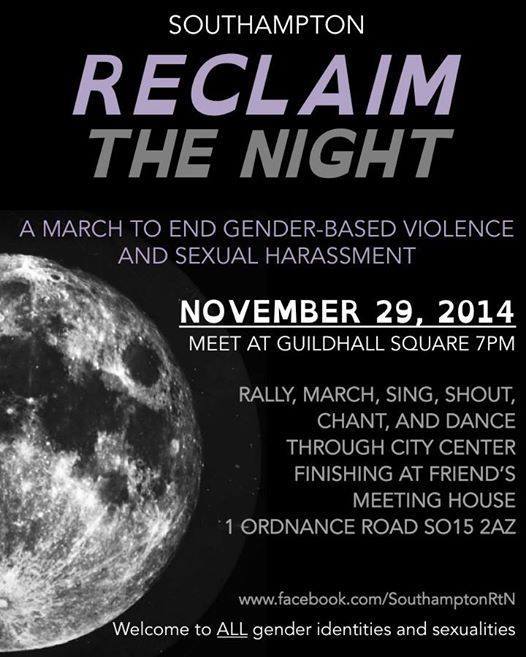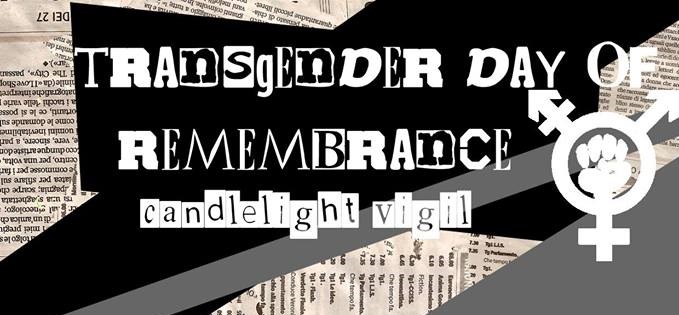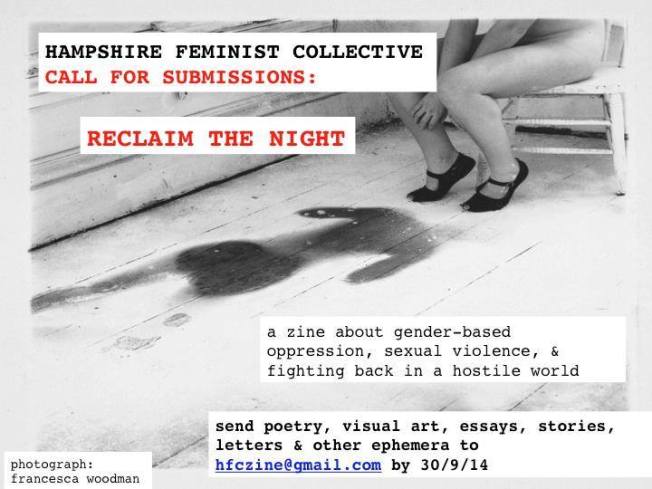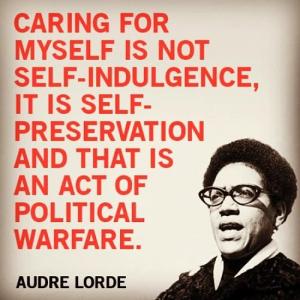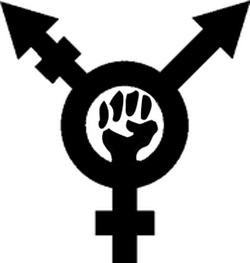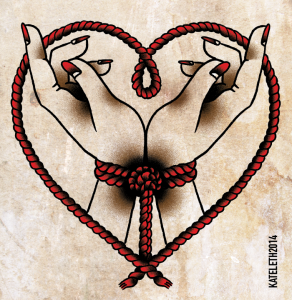 [Image description: A pair of hands are bound at the wrists with red rope that then encircles them in a heart. Credit: Kate Leth 2014]
[Image description: A pair of hands are bound at the wrists with red rope that then encircles them in a heart. Credit: Kate Leth 2014]
As the release date for ‘Fifty Shades of Grey’ gets closer and closer, there are a lot of people nervous about the negative repercussions that this story will create. The two main issues being the story’s poor portrayal of what a BDSM relationship is and how the abusive, controlling nature of the main character, Christian Grey, is normalised and even romanticised. The producers are advertising this film as a ‘romantic’, with its release date around Valentine’s Day, reflecting the franchise’s appreciators who see it as nothing more than a bit of risqué, taboo fun. When in reality it is an emotionally and physically abusive relationship romanticised for a day that is meant to represent love and intimacy.
A healthy BDSM relationship not merely involves communication, but realises that it is paramount to a fulfilling and consensual role-playing scene. The Submissive and Dominant would both engage in a conversation of what the submissive wants to receive, what their soft-limits are (something that they have hesitations about but places strict conditions on with specific informed consent relevant to a situation) and what their hard limits are (things they will not enjoy and do not want to engage in under any circumstances – what is off limits). The Dom(me) may discuss what they’re willing and not willing to do and they will both agree on a ‘safe word’ for either of them to use, particularly, only because they will be in the more compromising position, for the submissive to use if they feel uncomfortable, scared, unsafe, unhappy, are in pain and/or they want to stop. Anyone engaging in consensual role-play would then immediately stop and move into the ‘after-care’ period of a play scene, which will vary for each couple, depending on how intimate they are usually, but could involve things like cuddling, talking, soothing, letting the Sub have silence and space but ultimately letting them know that they are there for them and there in a caring capacity.
Abusers use anything they can in order to create an ‘excuse’ for abuse. Christian Grey uses the traumatic experience of his childhood to justify his actions, using coercion and scare tactics to make Anastasia engage in sexual acts she isn’t comfortable with. He also manipulates her emotionally and financially to gain control in every situation. This is in no way a healthy representation of any relationship, let alone a BDSM relationship. What is worrying is the number of people who will go and see this film, with their curiosity for BDSM whetted by the books, and think that that is acceptable behaviour, or the other half of serious viewers who will have even more reason to believe the myth that people who engage in BDSM are all traumatised, mentally damaged or ill or need saving and that that’s their reason for engaging in it. From what I can gather from the film’s trailer and others’ reviews, the film strives to suggest that if Christian and Ana could just have a loving, ‘vanilla’, relationship all their problems would be solved. Guess what? People who engage in healthy BDSM can have and are having loving relationships built on trust, affection and respect.
This film is going to create damaging repercussions because it will give men who want to find proof the reason they need to argue that women do enjoy being dominated over, and that women should submit, sexually and emotionally to a man’s needs. There will be men who will try replicating scenes, some to women who asked them to go to the cinema and watch it with them, but some who will give the woman they enact them on no choice – exactly as Christian does. In America, a campaign has been started called ’50 Dollars Not 50 Shades’, urging people to donate money to domestic abuse survivor’s shelters, rather than giving their money to the Fifty Shades franchise. This is because a lot of people are acutely aware of the negative impact this will have on abusive relationships. If you want to explore your curiosity towards BDSM play find the community of kinksters in real life around you, sign up to an online Fetish community forum or social media site. There you can find people who can engage you in informative conversations and experiences of healthy BDSM play. But just because this film is the only mainstream representation of BDSM anyone has ever really seen, don’t think that that’s how it’s done. Don’t support this representation of a manipulative, abusive, relationship.
